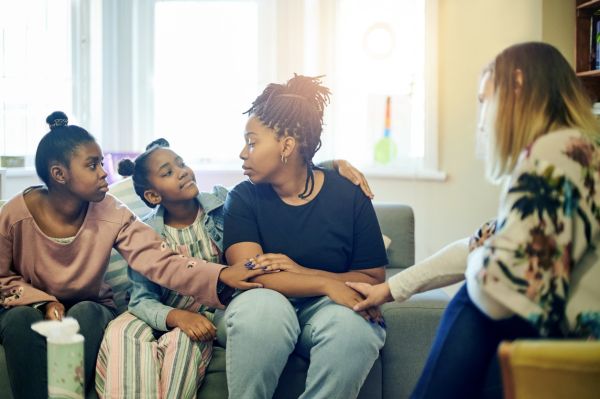No one imagines on their wedding day, that they’ll eventually tell their children that they’re getting a divorce. While it’s not a conversation anyone looks forward to having, that doesn’t mean that there aren't ways to ensure that it goes smoothly for both the parents and the children.
When Should You Tell Your Children that You’re Getting a Divorce?
There's no perfect time to tell your child or children that you're filing for divorce. But it is best to choose a time when everyone is feeling relaxed, and there are no heightened emotions or time pressures going into the conversation. Your children may have a lot of questions or they may not have any at all, but you want to give them space to process their emotions and ask the questions when they are ready.
Should You Tell Them As Soon As You’ve Made the Decision?
Whether the decision to divorce was a mutual one that was a long time coming or something your spouse asked for and which you didn't expect, you're likely to have a whole range of emotions, including anger, sadness, trepidation, and even relief. But if you can't get through the sentence without expressing those feelings, it's probably best to hold off until you're feeling a little more settled. While you don't want your kids to be the last to know, it's probably best to process these emotions with a trusted adult friend, therapist, or family member, so that you are more able to have a calm and measured conversation about what’s next for your kids.
Should You Tell Your Kids with Your Partner?
Ideally, yes, but of course, there are exceptions. If there is domestic violence, including verbal or emotional abuse, or you don't trust that you and your partner can put on a united front, it is likely best to have the conversation separately. But ideally, the two of you can join forces and follow a few best practices for how to talk to your children about divorce:
- Leave blame out of it. In every state, including California, no-fault divorce has taken precedence over the old system, wherein spouses had to prove adultery, cruel treatment, or various other reasons for why the divorce should be granted. Now, one spouse has to simply swear that the marital relationship has irretrievably broken down. You can borrow the same approach with your children. Even if your spouse's issues or shortcomings are the primary cause, rehashing what vows were broken and what the other person did shouldn't be a part of this conversation.
- Anticipate their questions and be clear about what you can and can’t promise. For example, if you’re planning to keep them in the same school and expect that they will see both their parents on a regular basis, you can let them know that, even if, as is likely the case, you don’t have every detail of the custody and visitation plan worked out. But don’t make promises that feel easy in the moment and that you might not be able to keep. You can be honest about what you do and don’t know at the time you’re having the conversation.
- Make it clear that they have a voice in the process, but that they don’t have to choose sides. Children almost always want some kind of a say in the big decisions that affect their lives, and since they don’t (or shouldn’t) get a say in whether you get a divorce or not, giving them some age-appropriate level of input into what your new arrangement will look like can be a good idea. However, kids should not be made to feel like they’re choosing one parent over the other. Judges also look very poorly on parents who try to recruit children to their way of thinking or seem to be putting undue pressure or influence on the child to favor them. In many states, a strong factor in determining custody is which parent is likely to best foster the relationship with the other parent.
- Be prepared to have more than one conversation. Though getting the big news out of the way may be the most stressful conversation to have, it is normal for kids to seem fine with the first conversation and express anger, sadness, or confusion as the news fully sinks in or as changes in their lives start happening. It is important to remain patient and understanding.
Contact A Divorce Attorney Today
Talking to children about divorce is never easy, but with intentional thought and care, you can help minimize the negative impact of divorce on your kids. To learn more about divorce and family law, we invite you to contact ADZ Law to schedule a confidential consultation.


